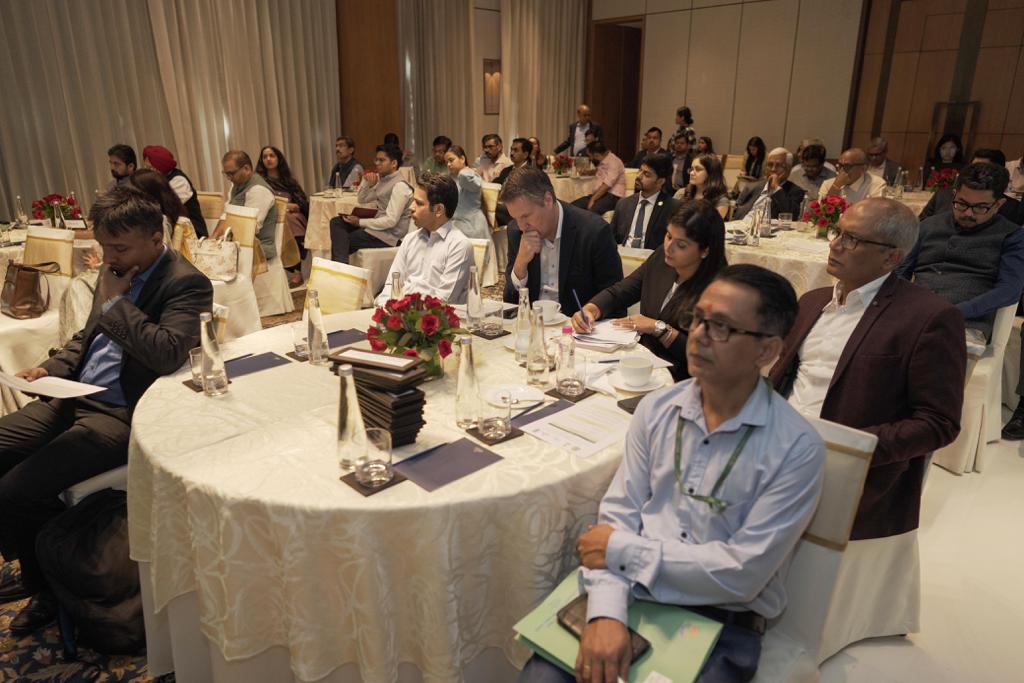
The Ministry of Environment, Forest and Climate Change together with Ministry of Steel organized a National Leadership Group for Industry Transition (LeadIT) workshop on low-carbon development of the steel sector in India “Understanding Challenges faced by the Industry in Low Carbon Transition of the Sector & LeadIT Role in facilitating Solutions” on 18th October 2023 at New Delhi. UNDP and Invest India supported in organizing the event.
TPIW.jpeg)
The workshop provided a platform for various stakeholders to deliberate on innovative solutions for the low carbon transition of the Steel sector in India which will further firm up India’s commitment towards its climate action. The workshop was attended by various stakeholders in India including Large Steel Companies, Steel Associations, All India Induction Furnace Association, Financial Institutions, Multilateral Development Banks. The workshop was also attended by the representatives from Government of Sweden, LeadIT Secretariat and company member from Sweden.
Secretary, Environment, Forest & Climate Change, Smt Leena Nandan stressed upon the role of steel sector in India’s development and its expected contribution to the journey of Net Zero by 2070. She emphasized on the need for the balance between development and climate action. Schemes like Production Linked Incentives (PLI), innovation in the construction sector have helped in low carbon growth. She highlighted that under India’s G20 Presidency, the Environment and Climate Sustainability Working Group (ECSWG) of the G20 played an important role in furthering the resource efficiency and circular economy dialogue. She affirmed that the policies should translate to action on ground. Industry transition with respect to the steel sector requires mainstreaming of circularity, material efficiency, scaling up renewables especially in the MSME sector and managing the transition risk. Finance was cited as one of the key drivers for this required change.
Secretary, Steel, Shri Nagendra Nath Sinha highlighted that managing the steel sector sustainably with a package of measures which should benefit both the economy and the industry. Emerging technologies like CCUS, premium on green steel and government procurement policies were highlighted. He mentioned about the constitution of 13 task forces by Ministry of Steel covering areas like energy efficiency, CCUS, demand-side measures, finance, monitoring-reporting-verification (MRV). He maintained that utilization of biomass, biofuel and biochar is an important area, however have technical and business challenges. Policy measures, research & development, access to finance and technology transfer with consortia approach were underscored. LeadIT platform was seen as a platform for facilitating the low-carbon transition agenda, technology co-development, technical assistance, financial assistance and research & development.

The workshop also had two very focussed panel discussions on large scale steel plants and MSME sector, with panellists from Government of Sweden, industry representatives, industry association, sector experts and financial institutions. The panel shared Sweden’s journey for a low-carbon transition in the steel sector along with technology challenges like usage of blast furnace and reducing emissions by making use of CCUS (Carbon capture, utilization and storage). The alignment of business plans with investment for climate action was stressed upon. The need for research & development, co-development, capacity building, policy, fiscal support and innovative financial instruments was highlighted.
The specific inputs received from the workshop will pave way for defining the upcoming phase of LeadIT i.e. LeadIT 2.0 that will be announced at UNFCC, COP 28 in UAE in December, 2023.
*****
MJPS

